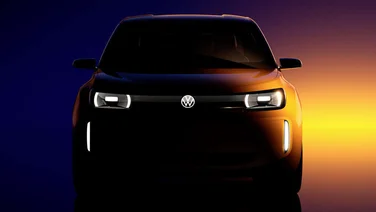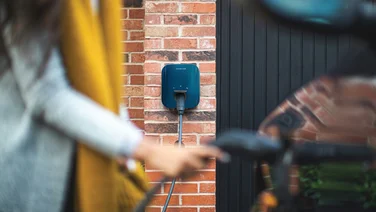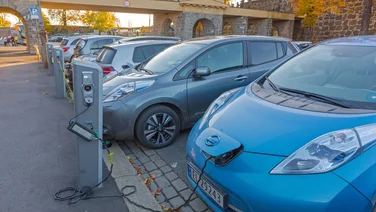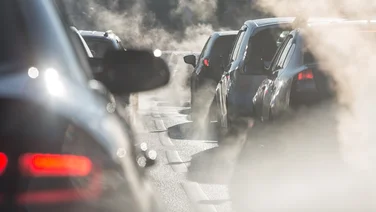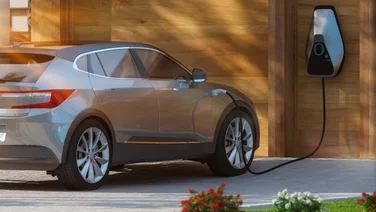- EV drivers will need to pay Vehicle Excise Duty – road tax – from April 2025
- Any new EVs will pay the lowest band of £10 until 2029-30
- Any EVs registered prior to April will pay the standard rate of £195

Electric vehicles (EV) drivers will need to pay Vehicle Excise Duty (VED) – better known as road tax – from April 2025, after the government changed rules that previously exempted them.
While this will only affect the cost for the first year the car is registered, there are some cost increases that EV drivers need to know about.
Any new EVs will pay the lowest band of £10 until 2029-30, and the standard annual rate – currently £195 – from the second year.
According to the RAC, in a move to incentivise the uptake of EVs, all cars emitting between 1-50 g/km of CO2 will see the first year tax bill rise to £110. Currently hybrids in this band pay nothing in the first year, while petrol and diesel cars pay £10.
New cars emitting between 51-75g/km will increase from £30 (£20 for hybrids) to £135.
But why will EV drivers now have to pay road tax? Quite simply, to make it fair and sustainable as more drivers transition to EVs.
In this guide, we’ll explain the changes in more detail and what it means for you.
What is road tax?
Road tax is an annual tax paid by all vehicle owners in the UK, and currently is only paid by petrol and diesel car drivers under the ‘polluter principle’. This has always exempted EV drivers as they produce zero emissions.
It was first introduced in 1937 and replaced an older system of tax. What’s more, in 1921, the tax disc was introduced and car tax was handled by local authorities until 1974 when the Driver and Licensing Vehicle Centre (DVLA) was established.
Each year, as reported by RAC, the DVLA collects around £5bn in road tax and is grouped in with other forms of tax, so it is just as likely to be spent on education or healthcare as it is on roads.
The amount you pay depends on the type and age of the vehicle, and these are set by the government and are subject to change. For years, EVs, classic cars and vehicles used for disabled people have been exempt.
However, from April 2025, EVs will no longer be exempt.
What are the road tax changes for EV drivers?
We’ve already touched upon the changes to road tax, but here’s a full rundown below:
- For new EVs registered on or after 1 April 2025: The first year rate for EVs will increase to the lowest band of £10 until 2029-30. From the second year, EVs will be subject to the standard annual rate. This is currently set at £195, but is subject to change as the government sets these prices.
- For EVs registered between 1 April 2017 and 31 March 2025: These EVs will automatically transition to the standard rate of £195 annually starting from April 2025.
- Luxury car tax or expensive car supplement: EVs with a list price of £40,000 or more will be subject to an expensive car supplement tax of £355 annually – on top of road tax – for the first five years following the first year registration.
EVA England said the government has recognised the “disproportionate impact of the expensive car supplement on EVs given they are typically more expensive than other vehicles.”
The group explained that while the government has not taken action to bring down costs, policymakers will look to make it easier to buy electric cars.

What does this mean for EV drivers?
If you currently own an EV, from April you will need to pay the standard rate of road tax. At the time of writing, this was £195, but can be subject to change. If your EV original list price was more than £40,000, you’ll also need to budget for the luxury car tax (expensive car supplement).
As mentioned above, the first-year rates for EVs, at £10, mean it’s still far more preferential for drivers over their diesel and petrol counterparts.
From now and 2026, the gap between EV and standard car rates will change. These include:
- Cars emitting 1-50g/km of CO2, including hybrids, will increase to £110
- Cars emitting 51-75g/km of CO2, including hybrids, will increase to £130
- All other rates emitting above this will double from the current charge
In addition to this, EVs are significantly cheaper to run. On average, it costs between 66.08p to 79.19p to charge an EV.
According to the RAC and based on charging on a ‘pay as you go’ non-subscription public EV charger, it will cost around 66.08p for a ‘fast’ charger (8-49kW), 77.67p for an ultra-rapid charger (150kw+) and 79.19p for a rapid charger (50-149kW).
For reference, diesel costs 142.91p on average, and unleaded is 136.99p, meaning you could save up to 50% on costs.
Buying an EV also helps lower your overall carbon emissions, which helps the UK and other countries help meet their net zero emissions goal. In the UK, they plan to hit net zero by 2050.
Summary
- After April 2025, EVs will no longer be exempt from road tax and EV drivers will need to pay the standard rate.
- Vehicle Excise Duty – better known as road tax – is an annual tax paid by all vehicle owners in the UK, and currently is only paid by petrol and diesel car drivers under the ‘polluter principle’
- Each year, the DVLA collects around £5bn in road tax and is grouped in with other forms of tax
- The first-year rates for EVs, at £10, mean it’s still far more preferential for drivers over their diesel and petrol counterparts
- EVs are significantly cheaper to run. On average, it costs between 66.08p to 79.19p to charge an EV
- Buying an EV also helps lower your overall carbon emissions.


